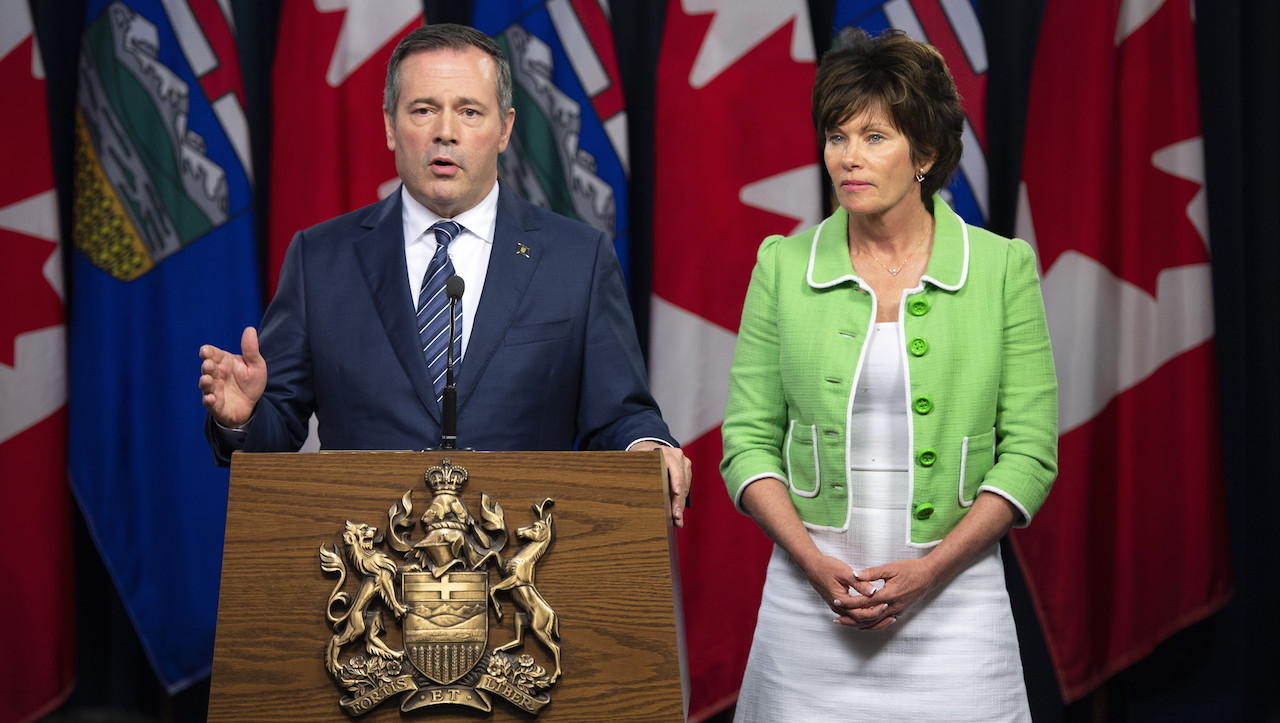William “Bible Bill” Aberhart, founder of the Social Credit Party, became the premier of Alberta in 1935. His government was populist: it pledged to take on the “50 big shots” that ran Canada.
Pushed by his caucus, Aberhart’s government instituted relief programs for the unemployed, froze mortgage foreclosures and debts, issued “prosperity certificates” as a sort of provincial currency, and introduced legislation to control banks operating in Alberta.
The lieutenant-governor refused to sign the banking law; other initiatives were eventually quashed in the 1940s by the Supreme Court. But the populist measures helped people in Alberta get through the worst of the Great Depression.
In electing Jason Kenney and his United Conservative Party (UCP), the people of Alberta have given themselves something else: a fake populist government. Instead of imitating Aberhart and taking on 50 big shots, the UCP is working on behalf of “the fossil-power top 50,” the powerful oil and gas interests identified by the Corporate Mapping Project, that wield great influence in Edmonton and Ottawa.
While the rate of corporate profit has fallen since the oil price plunge of 2014, the mass of corporate profits of the five largest corporations in the oil sands — Suncor, CNRL, Cenovus, Imperial, and Husky — which together produce 80 per cent of Canada’s bitumen, remains huge.
According to a 2018 Corporate Mapping Project study, “The aggregate gross profits of the big five in 2017 were $46.6 billion, which was close to the Alberta government’s revenues of $47.3 billion.”
The Alberta economic problem can be simply stated. At current and expected prices for oil and gas, there is a shortage of profitable investment opportunities in the industry. The province needs to look elsewhere for its opportunities.
The main market for Alberta — the U.S. — has gone from having an import deficit of $40 billion in 2007, to being an exporter (including to Canada), thanks to hydraulic fracking.
U.S. fracked oil and gas provoked a world fall in oil prices and initiated the 2014-2016 recession in Alberta.
The Kenney plan to revive the Alberta economy is a provincial corporate tax cut of one percentage point over four years (from 12 per cent to eight per cent).
As fully integrated multinational corporations operating in both Canada and the U.S., the big five are liable for taxes in both jurisdictions. This means Alberta corporate tax cuts will not reduce the overall tax liabilities of the big five. Because combined federal and state corporate taxes will be higher in the U.S. than combined federal and provincial corporate taxes in Alberta, it means those corporations will pay taxes in the U.S. that they could have paid in Alberta!
The UCP premier points to academic research to justify his decision to lower provincial corporate taxes. Professor Bev Dalby has developed an econometric model that show a reduction in their taxes provokes an increase in corporate investment.
But no economic model can change the reality that faced with a poor business outlook, no oil and gas companies will gear up for new ventures in Canada regardless of what real reductions in corporate taxes do occur.
Having money on hand to invest is not the issue in the oil and gas sector. A 2016 study showed Canadian governments subsidized the sector to the tune of $3 billion-plus (ironically while profitable solar energy investment is taking place in Alberta, the Kenney government is cutting back support for renewable energy sources).
The Alberta economy will stagnate unless the government invests in the future — which is what the previous Notley government was doing — but not the UCP government, which rejects that idea and is betting on austerity instead.
The Kenney government has just brought in a budget that CUPE Alberta points out “hurts everyone” in Alberta. Research from the Alberta Federation of Labour demonstrates that the Kenney approach will prolong the economic slump and “kill more jobs than the oil price collapse of 2014-16.”
The main thing the fake populism of Jason Kenney has in common with the William Aberhart era is that the UCP, like Social Credit, will outdo itself to promote social conservatism.
Under Aberhart, Social Credit was openly anti-Semitic.
The Kenney government is prepared to vote for Bill 207, what rabble.ca blogger David Climenhaga describes as an “Act to Restrict Reproductive and Other Rights in Alberta.”
Duncan Cameron is president emeritus of rabble.ca and writes a weekly column on politics and current affairs.
Image: Government of Alberta/Flickr



